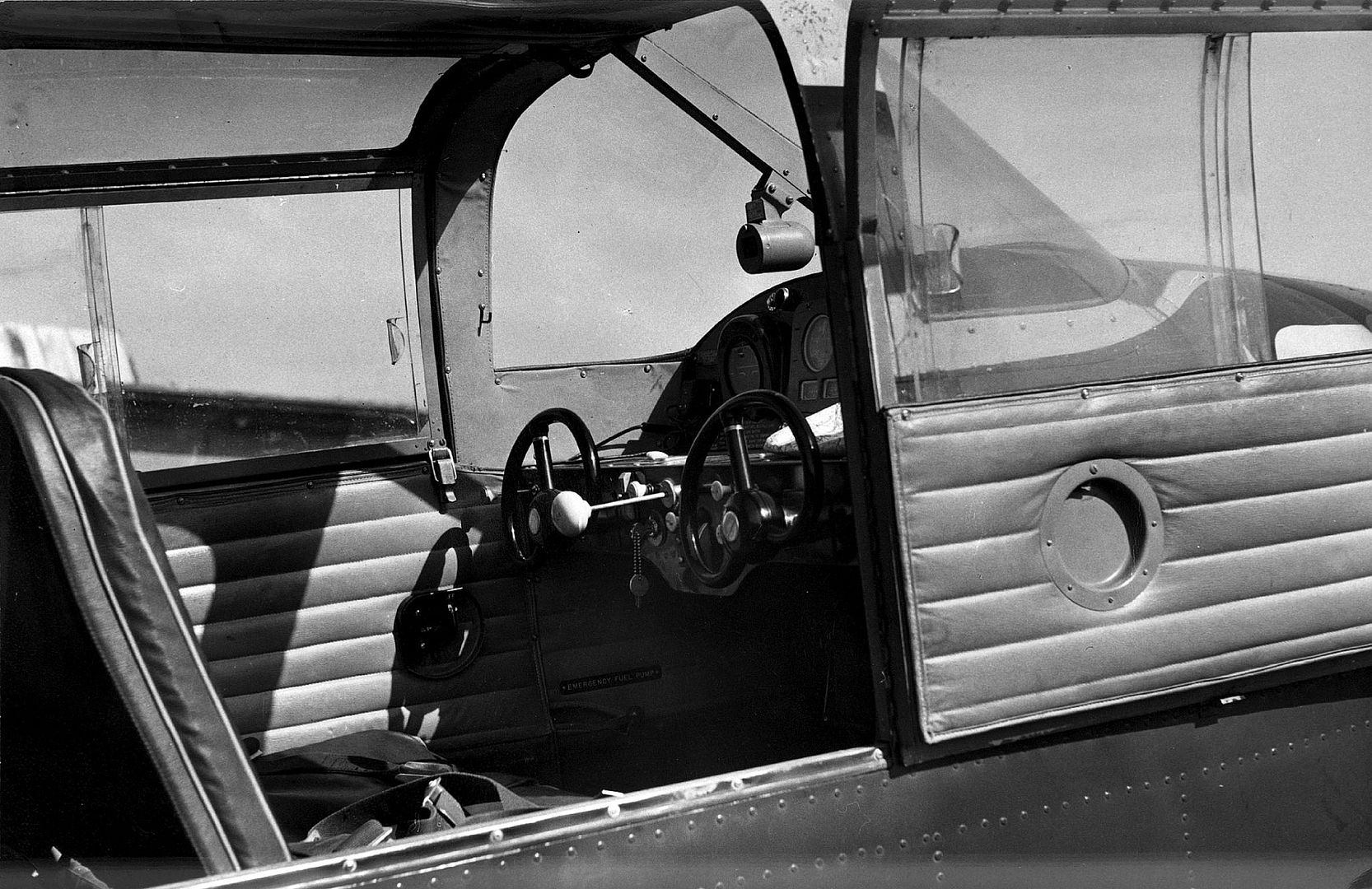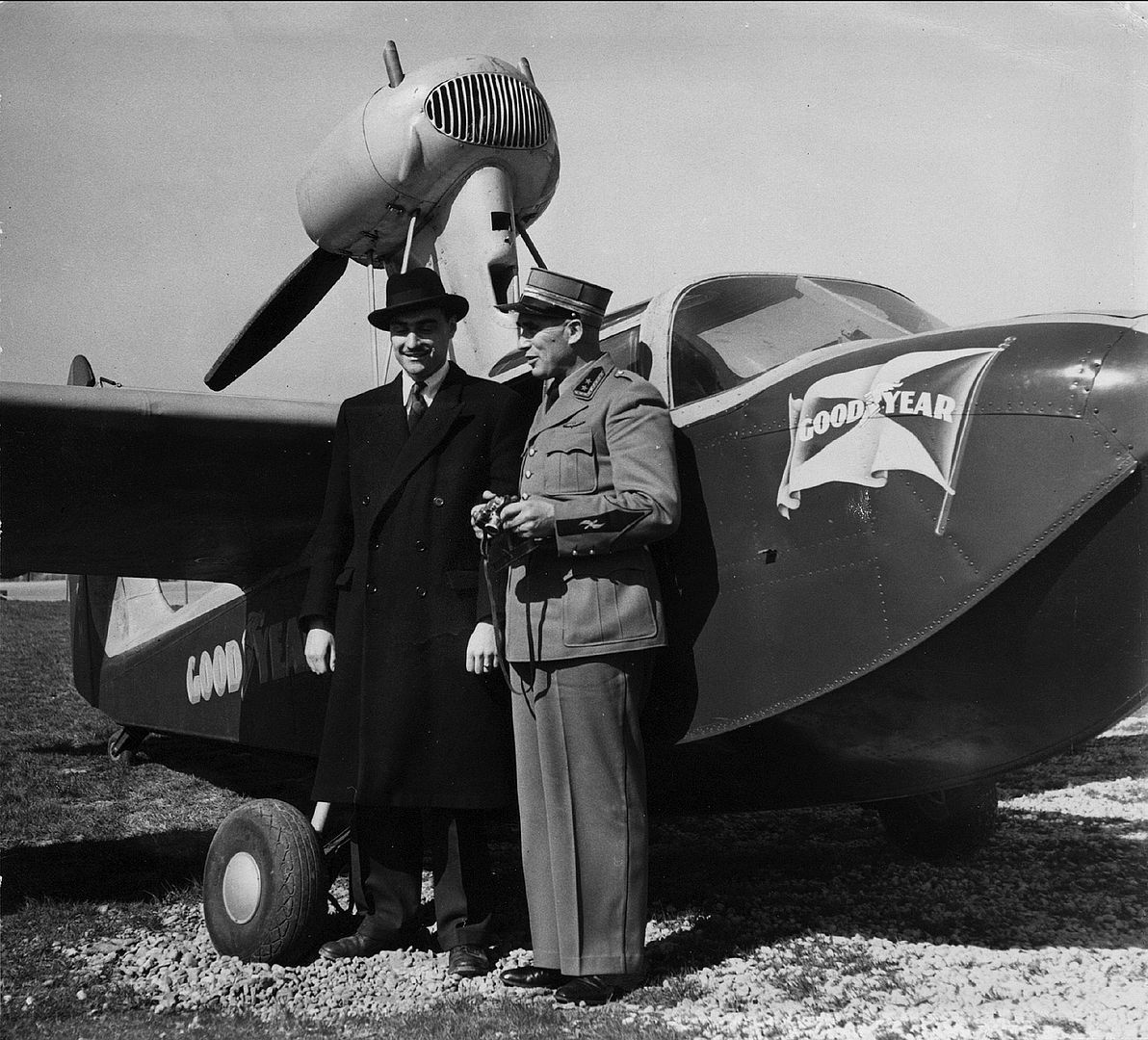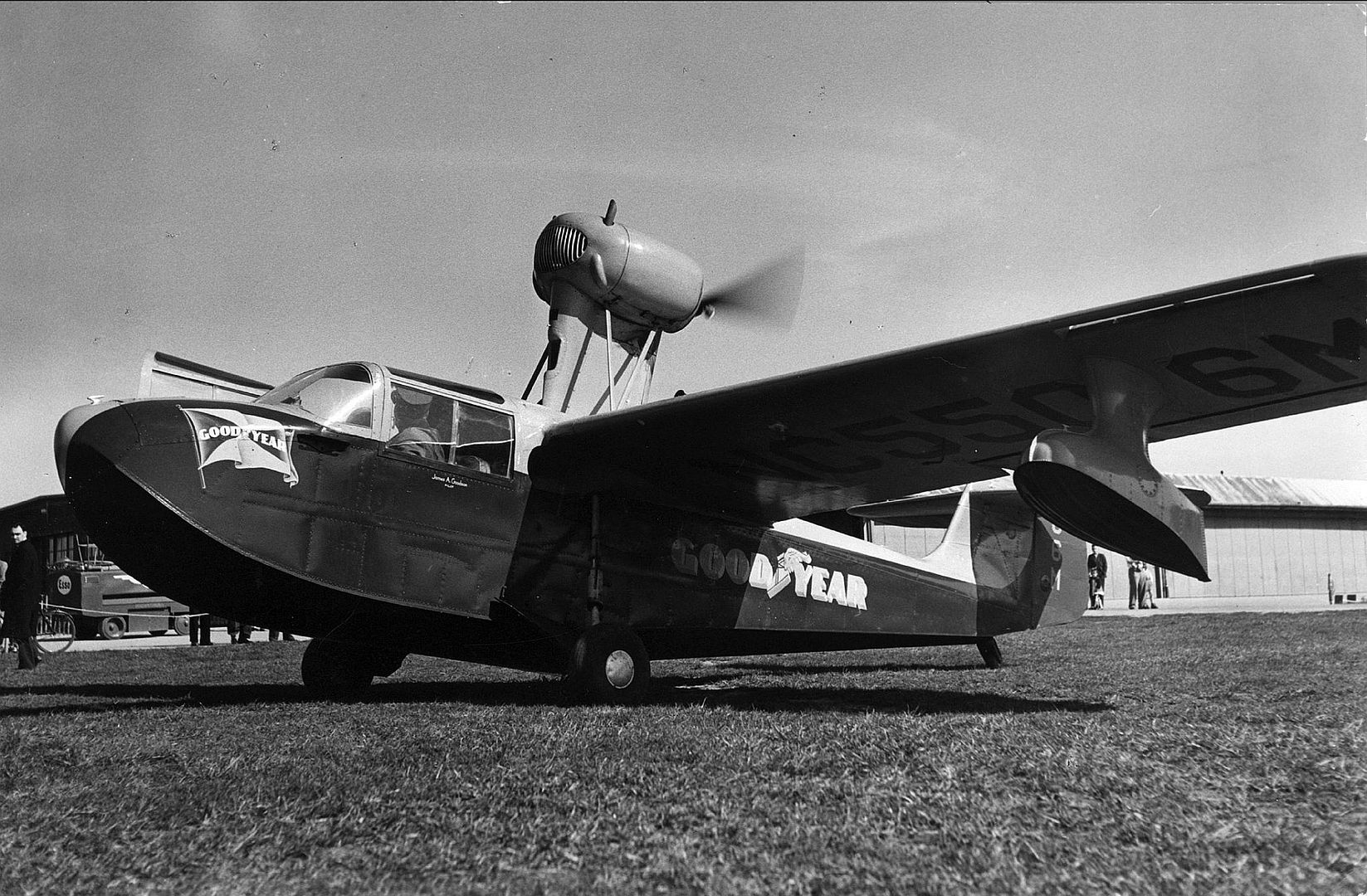Forums
- Forums
- Duggy's Reference Hangar
- USAAF / USN Library
- Goodyear Duck
Goodyear Duck
Post a reply
- Go to Previous topic
- Go to Next topic
- Go to Welcome
- Go to Introduce Yourself
- Go to General Discussion
- Go to Screenshots, Images and Videos
- Go to Off topic
- Go to Works in Progress
- Go to Skinning Tips / Tutorials
- Go to Skin Requests
- Go to IJAAF Library
- Go to Luftwaffe Library
- Go to RAF Library
- Go to USAAF / USN Library
- Go to Misc Library
- Go to The Ops Room
- Go to Made in Germany
- Go to Campaigns and Missions
- Go to Works in Progress
- Go to Juri's Air-Raid Shelter
- Go to Campaigns and Missions
- Go to Works in Progress
- Go to Skinpacks
- Go to External Projects Discussion
- Go to Books & Resources
-
 Main AdminThe Goodyear GA-2 Duck was a 1940s American three-seat light amphibious aircraft built by the Goodyear Aircraft Corporation. The design team included David Thurston, who later developed several other light seaplanes including the Colonial Skimmer, Lake Buccaneer, Thurston Teal and Seafire. Only 19 aircraft were built, and these were used only for testing and as demonstrators.
Main AdminThe Goodyear GA-2 Duck was a 1940s American three-seat light amphibious aircraft built by the Goodyear Aircraft Corporation. The design team included David Thurston, who later developed several other light seaplanes including the Colonial Skimmer, Lake Buccaneer, Thurston Teal and Seafire. Only 19 aircraft were built, and these were used only for testing and as demonstrators.
Design and development
The Goodyear Aircraft Corporation began to design a small light amphibian before the end of the Second World War. The prototype designated GA-1 first flew in September 1944. It was a cantilever high-wing monoplane with underwing stabilizing floats. The GA-1 had an all-metal fabric-covered wing, an all-metal single-step hull, and a cruciform tail unit. It had a retractable tail-wheel, accommodation for two, and a pylon-mounted piston engine with a pusher propeller.
Operational history
After successful testing of the prototype, 18 demonstration aircraft were built. These differed from the prototype in that they had room for the pilot and two passengers. Two versions were built, the GA-2 with a 145 hp (108 kW) Franklin 6A4-145-A3 piston engine, and the GA-2B with a 165 hp (123 kW) Franklin 6A4-165-B3 flat-six piston engine. Although the aircraft were successfully tested and demonstrated, the costs involved in producing the aircraft prevented it being sold at a price that private pilots could afford, and the project was abandoned. In 1950, a revised four-seat variant the GA-22 Drake was flown, followed in 1953 by the GA-22A Drake; only one of each was built.
Variants
GA-1 Duck
Prototype two-seater originally powered by a 107 hp (80 kW) Franklin 4ACG-100-H3 piston engine, later fitted with a 125 hp (93 kW) Franklin 6A engine, one built.
GA-2 Duck
Demonstration three-seat aircraft with a 145 hp (108 kW) Franklin 6A4-145-A3 engine, 16 built, some later modified as GA-2Bs.
GA-2B Duck
Demonstration three-seat aircraft with a 165 hp (123 kW) Franklin 6A4-163-B3 engine, six modified from GA-2s in 1949.
GA-22 Drake
Revised larger variant with four-seats, two built (one as a GA-22A with a revised hull) with the first flight in 1950.
GA-22A Drake
Revised larger variant with four-seats, powered by a 225 hp (167 kW) Continental E-225-8 and converted into a flying boat with a revised hull; first flight in 1953.


Specifications (GA-2B)
General characteristics
Crew: One
Capacity: Two passengers
Length: 26 ft 0 in (7.92 m)
Wingspan: 36 ft 0 in (10.97 m)
Height: 9 ft 6 (on wheels) in (2.90 (on wheels) m)
Wing area: 178.20 ft2 (16.55 m2)
Empty weight: 1600 lb (726 kg)
Gross weight: 2300 lb (1043 kg)
Powerplant: 1 ? Franklin 6A4-163-B3 flat-six piston engine, 165 hp (123 kW)
Performance
Maximum speed: 125 mph (201 km/h)
Range: 300 miles (483 km)
Service ceiling: 15,000 ft (4570 m)
Post a reply
- Go to Previous topic
- Go to Next topic
- Go to Welcome
- Go to Introduce Yourself
- Go to General Discussion
- Go to Screenshots, Images and Videos
- Go to Off topic
- Go to Works in Progress
- Go to Skinning Tips / Tutorials
- Go to Skin Requests
- Go to IJAAF Library
- Go to Luftwaffe Library
- Go to RAF Library
- Go to USAAF / USN Library
- Go to Misc Library
- Go to The Ops Room
- Go to Made in Germany
- Go to Campaigns and Missions
- Go to Works in Progress
- Go to Juri's Air-Raid Shelter
- Go to Campaigns and Missions
- Go to Works in Progress
- Go to Skinpacks
- Go to External Projects Discussion
- Go to Books & Resources
